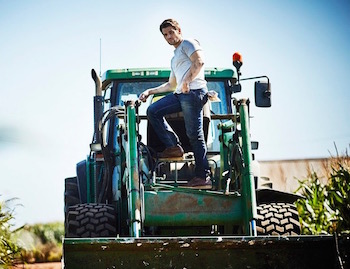TCA: 'Childhood's End' EP: 'It Would Be Crazy to Deviate From What Arthur C. Clarke Envisioned'

The smarter way to stay on top of broadcasting and cable industry. Sign up below
You are now subscribed
Your newsletter sign-up was successful
Related: Complete Coverage of TCA Summer Press Tour
Beverly Hills, Calif. — Arthur C. Clarke wrote the 2001: A Space Odyssey novel and cowrote the film’s screenplay, but Childhood’s End is often regarded as his best novel. There have been a few false starts over the years but never a film or TV adaptation of the classic 1953 science fiction novel — until now. Syfy is adapting Childhood’s End into a three-part, six-hour miniseries, premiering Dec. 14. No pressure.
“As fans of the book we felt a responsibility to do it justice,” said executive producer Michael De Luca Wednesday at the show’s TCA summer press tour panel.
The story follows humans living in a utopia following a peaceful alien invasion of Earth by mysterious Overlords.
“It was not made for a long time because it was thought to be blasphemous,” said Mike Vogel, who stars as Ricky Stormgren, humanity's only representative to the Overlords, who is “thrust onto the world stage.” In the book he was a sexagenarian UN Secretary-General, Vogel said, but in the miniseries is a farmer from Missouri . “He’s almost a Moses character, “Vogel said. “They call him the blue collar prophet.”
The alien "Supervisor for Earth" is the mysterious Karellen, whom writer and exec producer Matthew Graham assured is the same Karellen as in the book rather than taken metaphorically. “It would be crazy to deviate from what Arthur C. Clarke envisioned,” Graham said.
Karellen is voiced by Game of Thrones’ Charles Dance. It wasn’t about casting a Brit for the role, Graham said. “It was about casting Charles Dance.” They needed someone, Graham said, who sounded like a “global voice, a strong intergalactic leader,” a philosopher, a teacher and a friend. “There are not many actors who can convey all of that,” he said.
The smarter way to stay on top of broadcasting and cable industry. Sign up below
Costar Daisy Betts said that the interesting thing about the story is that it’s not about fighting aliens but rather their presence in a seemingly good utopia. “They give us supposedly what we want. which just make it creepy,” Betts said.
“When we introduce 'the other,'” added costar Yael Stone, “that’s the best way to look at ourselves.”
